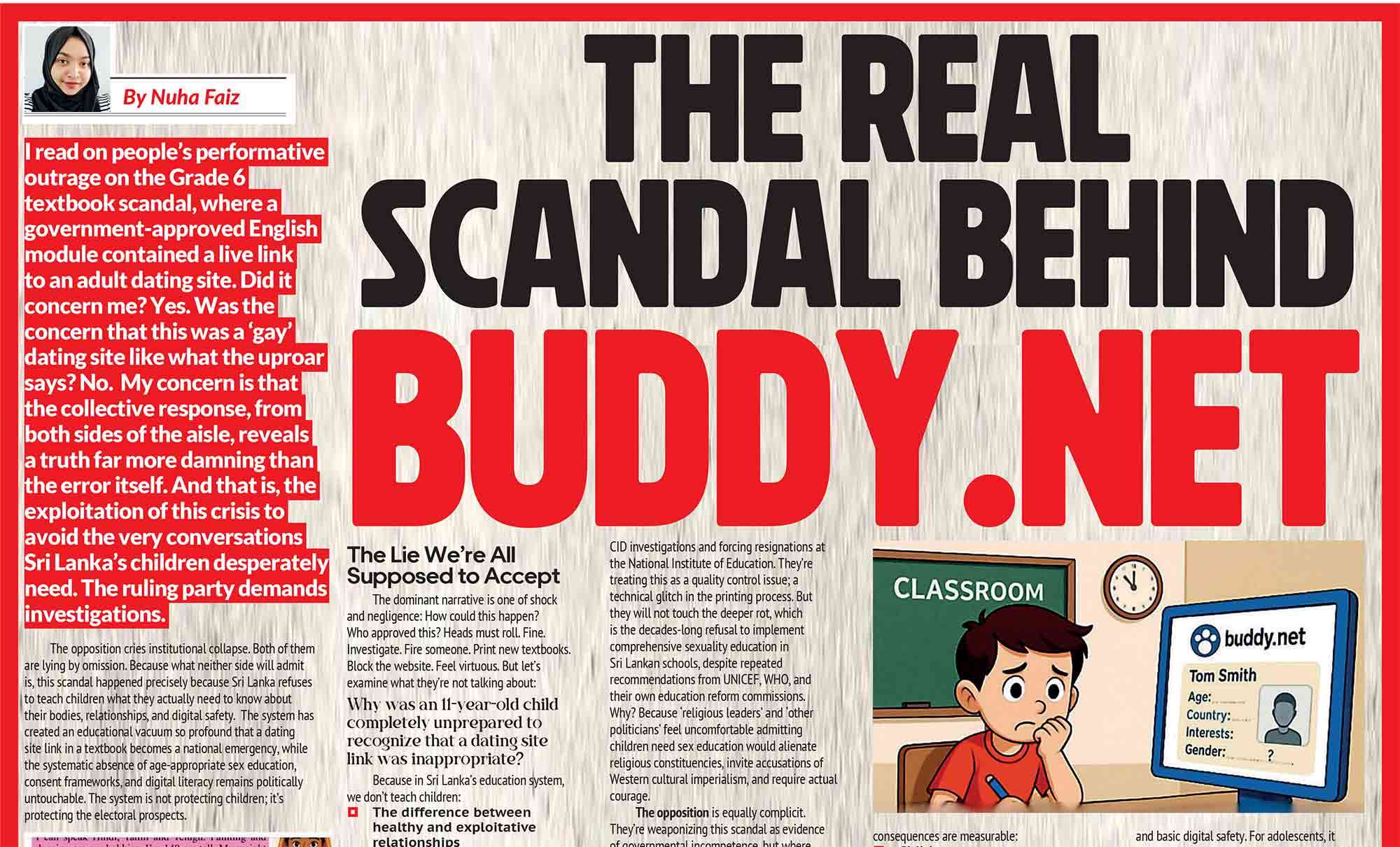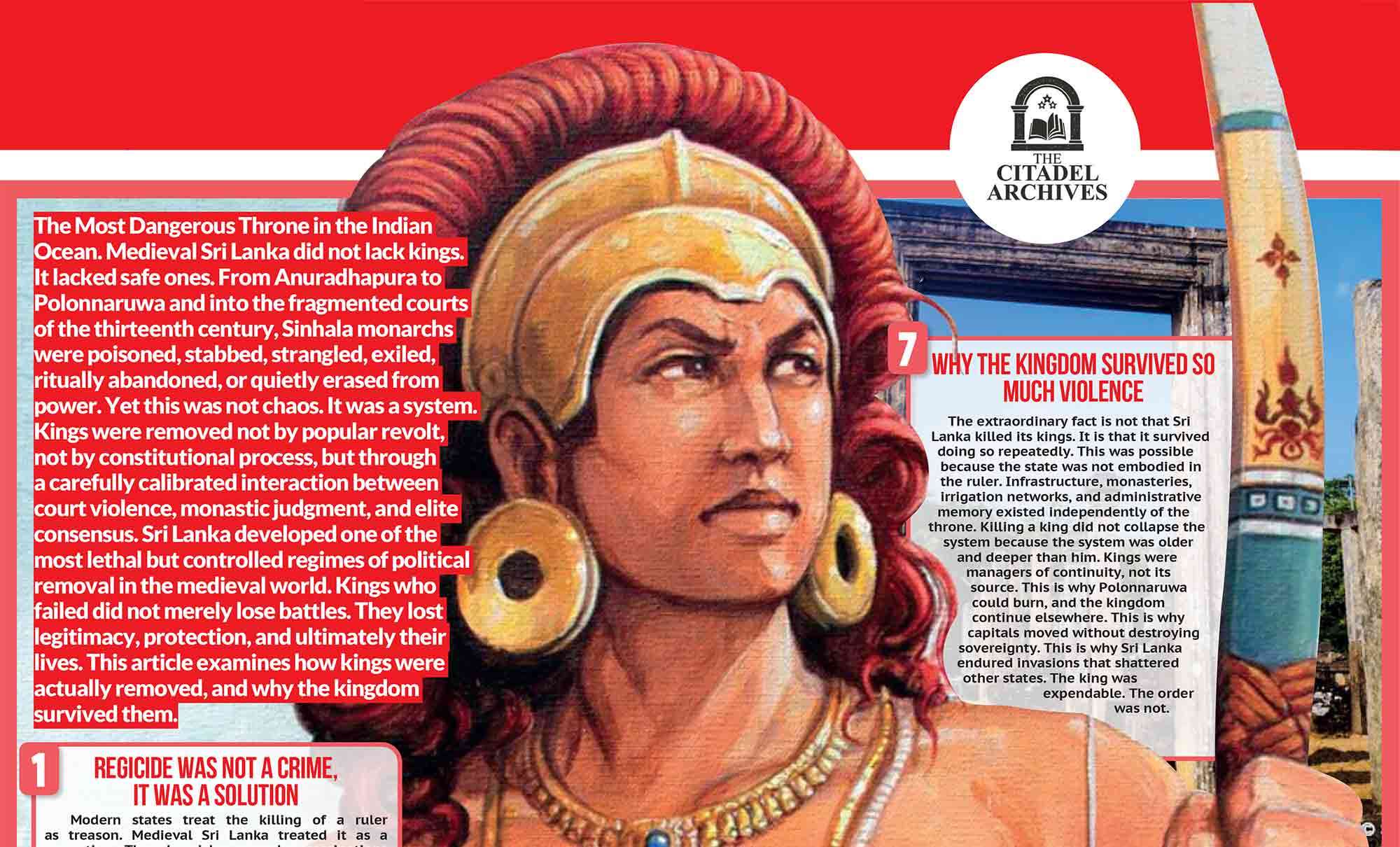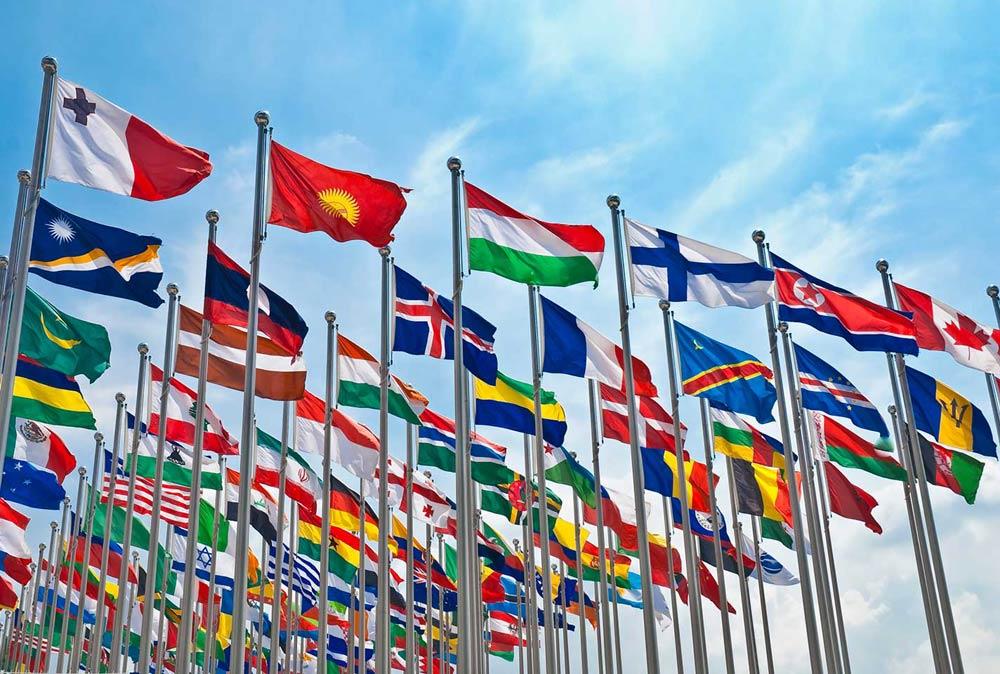
The 80th session of the United Nations General Assembly (UNGA) unfolded in New York this September against a backdrop of deepening global crises. From the wars in Gaza and Ukraine to economic headwinds and climate stress, the world’s leaders arrived at Turtle Bay with urgent challenges on the table, and left with stark reminders of division, political theatre, and institutional gridlock. Over a week of speeches, walk-outs, and diplomatic manoeuvring, several moments stood out: President Donald Trump’s combative address questioning the very purpose of the UN, Israeli Prime Minister Benjamin Netanyahu’s fiery speech that prompted one of the largest walkouts in Assembly history, sharp exchanges over Palestine and Ukraine, and pointed interventions from India and Sri Lanka on the future of multilateralism.
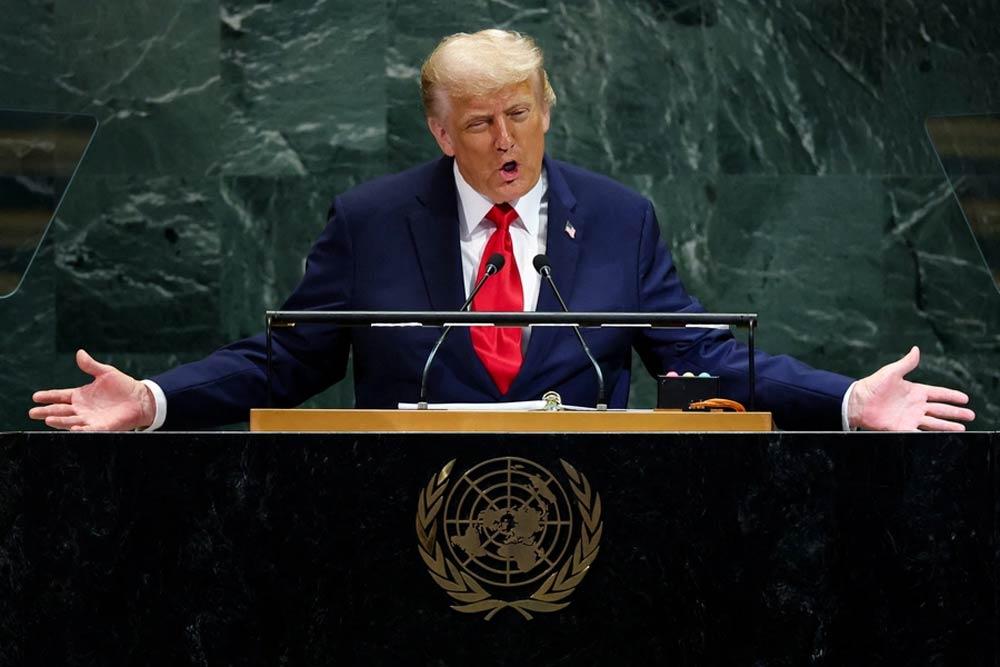
Trump’s Defiant Return to the World Stage
All eyes were on President Donald Trump as he opened the General Debate, a moment symbolically significant given the United States’ traditional place at the start of proceedings. President Trump’s speech was equal parts performance and provocation. He questioned the relevance of the UN in today’s world, asking bluntly: “What is the purpose of the United Nations?” His remarks, delivered with visible irritation after a teleprompter malfunction and an embarrassing escalator glitch that delayed his arrival at the podium, set the tone for a confrontational week. He accused the UN of failing to resolve wars in Gaza and Ukraine, suggested that multilateralism undermines national sovereignty, and warned that Washington would “no longer bankroll dysfunction.” Yet conspicuously absent was any reference to the UN’s development and humanitarian agencies, from UNICEF to WHO, that underpin much of the organisation’s global work. Analysts read President Trump’s speech as less about rallying allies and more about reaffirming his nationalist stance to a global audience. “It was a message designed for domestic politics, not diplomacy,” one European diplomat remarked privately. “It told the world: America first, the UN last.”
Netanyahu Sparks Mass Walk-Out
If Trump set the mood, it was Benjamin Netanyahu who ignited the week’s defining drama. The Israeli prime minister arrived in New York with Gaza still burning, and he used his speech to double down on his government’s hard-line posture. “We must finish the job in Gaza,” he declared, rejecting outright the recognition of a Palestinian state as “sheer madness.” He warned countries that had supported recent resolutions in favour of Palestinian statehood that they were “encouraging terrorism.” At one point, he addressed the remaining Israeli hostages in Gaza directly, switching into Hebrew and claiming that his speech was being broadcast live into the territory. But by then, most of the audience had already left. More than 50 delegations, representing over 100 diplomats, staged a coordinated walk-out as Netanyahu approached the rostrum, a protest against Israel’s military campaign and his uncompromising rhetoric. By the time he reached his most forceful points, the cavernous Assembly Hall was half empty. The walk-out was one of the largest in the UN’s history and a powerful symbol of Israel’s growing isolation on the global stage. For Netanyahu, however, the optics seemed to matter less than projecting defiance. He thanked President Trump for backing Israeli strikes on Iran, denounced Hamas and Hezbollah as existential threats, and insisted Israel would prevail regardless of international opinion.
Palestine at the Centre
The Netanyahu spectacle was only one part of a larger debate that saw Palestine dominate the Assembly’s agenda. Just days earlier, the General Assembly had passed a resolution backing a two-state solution with overwhelming support: 142 in favour, 10 opposed, and 12 abstentions. Sponsored by France and Saudi Arabia, the resolution urged Israel to commit to Palestinian statehood and called for urgent steps toward peace. While non-binding, the vote reflected the weight of international opinion and put Netanyahu directly at odds with the majority of the UN membership. His blistering rejection of the proposal in his speech underscored the widening gulf. Several leaders, from Arab states to Latin America and Africa, used their time at the podium to demand an immediate ceasefire in Gaza, stronger humanitarian protections, and recognition of Palestine as a full UN member state. Adding fuel to the debate was a damning report earlier this year by the UN Human Rights Council, which concluded there was strong evidence Israel may be committing genocide in Gaza. The report, which is still reverberating through diplomatic circles, shaped the moral undertones of this year’s debate, with many speakers citing it explicitly.
Ukraine: A War that Won’t Leave the Agenda
Alongside Gaza, the war in Ukraine remained a central theme. Nearly every major leader referenced it, framing the conflict as a test of international law, sovereignty, and the resilience of the UN system itself. In February, the Assembly had passed Resolution ES-11/8 - “The Path to Peace” demanding Russia’s withdrawal and condemning the invasion. This year’s debate revisited those themes, with repeated calls for respect for territorial integrity and humanitarian law. But the vote tallies tell a story of shifting geopolitics. The resolution drew 93 votes in favour, 8 against, and 73 abstentions, reflecting fatigue and divisions within the Global South. Significantly, the United States under Trump opposed key elements of a related resolution, ES-11/7, marking a departure from the staunch pro-Ukraine stance of the Biden years. Trump’s more ambiguous position drew criticism from European allies and raised questions about future Western unity. For many nations in Africa, Asia, and Latin America, the war’s indirect effects, from energy price shocks to food insecurity, were as central to their speeches as the battlefield itself.
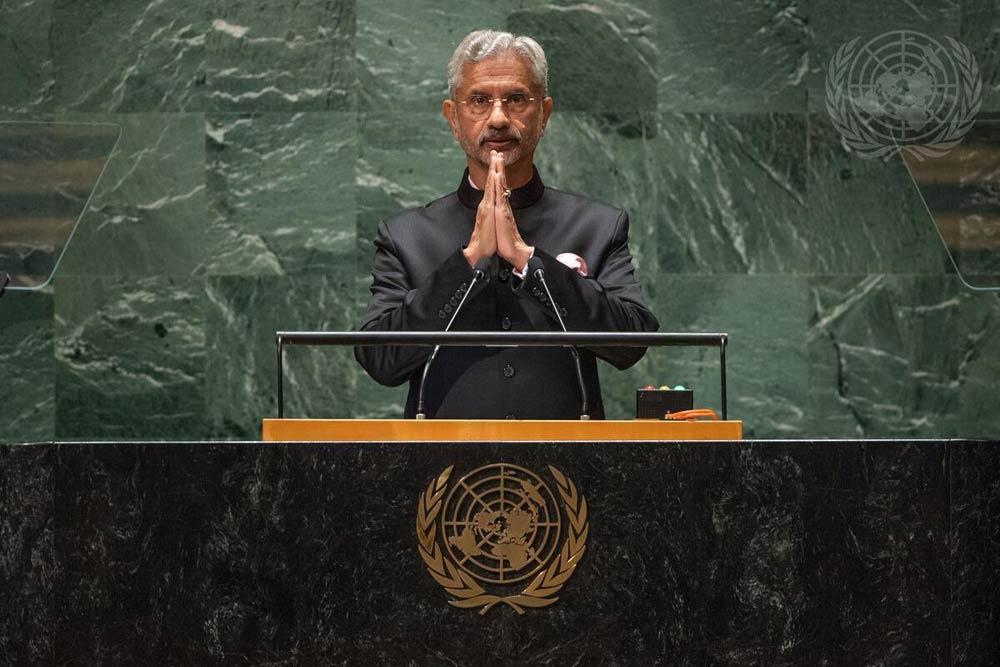
India’s Assertive Voice
India, represented by External Affairs Minister S. Jaishankar, seized the moment to push for a reordering of global governance. His speech was wide-ranging, combining sharp attacks with broad calls for reform. He lambasted Pakistan as the “epicentre of global terrorism,” citing the deadly Pahalgam attack, and accused Islamabad of destabilising the region. He warned of the dangers of overdependence on fragile supply chains, calling for “de-risking” global trade in the face of tariff volatility. Most pointedly, Jaishankar pressed for expansion of the UN Security Council, insisting that India was ready to take on greater responsibility. “The world cannot be run by a structure designed in 1945,” he said. “Reform is not a choice; it is a necessity.” On Ukraine, India maintained its cautious stance: rejecting escalation, calling for diplomacy, and warning that “there is no solution on the battlefield.” On Gaza, it walked a delicate line, reaffirming support for a two-state solution while avoiding the sharpest criticism of Israel. India’s intervention was widely read as part of its long game to position itself as a leading voice of the Global South while demanding a greater say in the institutions of global governance.
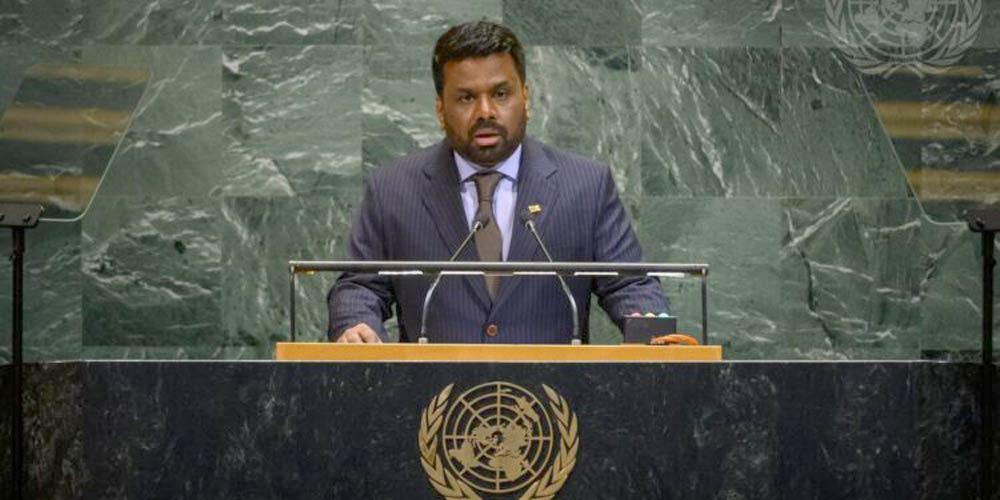
Sri Lanka’s Quiet Intervention
Sri Lanka did not make global headlines but offered a speech that captured broader concerns of smaller states. President Anura Kumara Dissanayake emphasised technology, digital inclusion, and the risks of a widening digital divide. “If we do not manage technological change, we will deepen inequality, insecurity, and injustice,” he warned. He also used the platform to reiterate support for a two-state solution and the “inalienable right of the Palestinian people to statehood,” aligning Sri Lanka with the majority view of the Assembly. For a nation grappling with economic recovery and external debt, the speech was also a reminder of how countries beyond the great power conflicts are trying to shape the agenda by focusing on long-term developmental and technological issues.
A Divided House
Beyond the set-piece speeches, the 2025 Assembly revealed deeper fractures in the multilateral system. Walk-outs, rhetorical clashes, and competing blocs highlighted how the UN is increasingly a stage for protest and symbolic politics rather than negotiation. Many leaders voiced frustration with Security Council paralysis, particularly over Gaza and Ukraine, where vetoes by permanent members have blocked action. Calls for reform of the Council, both in membership and procedure, echoed through the week. The Global South’s voice was louder than ever, with repeated demands for equity in climate financing, debt relief, and development goals. “The SDGs present a sorry picture,” Jaishankar noted, a sentiment echoed by African and Latin American leaders who warned that global inequality is worsening.
Symbolism, Spectacle, and Substance
If the UNGA is often derided as a talking shop, 2025 proved that the talk itself can matter, for symbolism, if not for solutions. Trump’s glitches and Netanyahu’s walk-out moment became viral images, reinforcing perceptions of dysfunction and division. The French Saudi push for Palestinian statehood highlighted how middle powers can seize initiative when great powers are gridlocked. Yet for all the drama, substantive breakthroughs were scarce. On Gaza, the divide between Israel and most of the Assembly is stark. On Ukraine, unity is slipping. On reform, calls grow louder but outcomes remain elusive. Still, the Assembly serves as a mirror of the global mood. This year it reflected a world weary of conflict, sceptical of institutions, and increasingly fractured into blocs, but still searching, however haltingly, for collective answers.
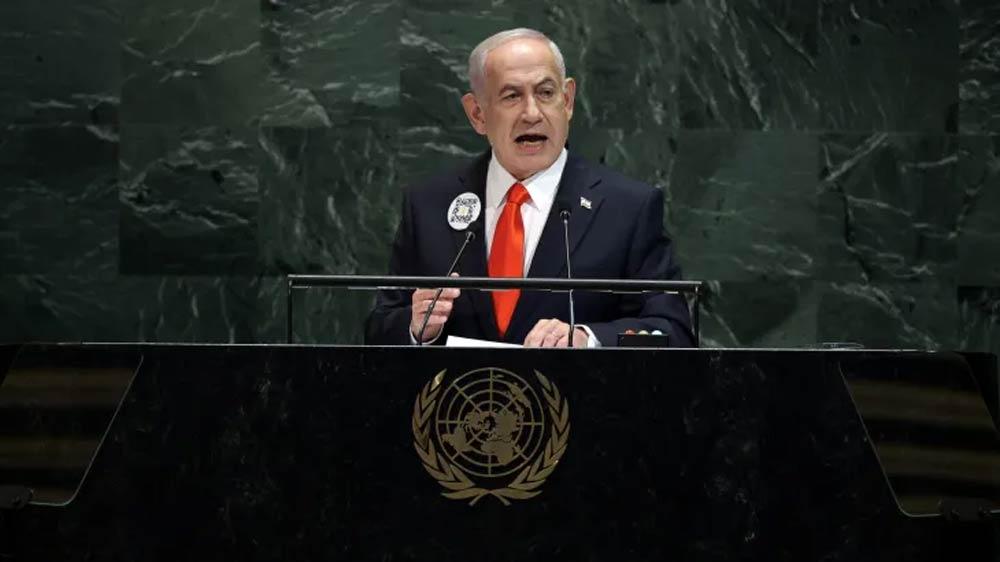
The Road Ahead
As the General Assembly wound down, diplomats left New York with little illusion that its debates had solved the crises at hand. But the speeches, resolutions, and symbolic gestures will shape the diplomatic landscape in the months to come. For Trump, the appearance reinforced his scepticism of the UN and hinted at a more unilateral American posture. For Netanyahu, the backlash underscored Israel’s growing isolation. For Ukraine and Palestine, the Assembly reaffirmed their centrality to the global agenda. And for countries like India and Sri Lanka, the forum provided a platform to press for reform and equity. The UN at 80 is caught between nostalgia for its founding ideals and the harsh realities of today’s multipolar world. The 2025 General Assembly captured that tension in vivid form: dramatic, divided, and yet, in its own way, indispensable.



